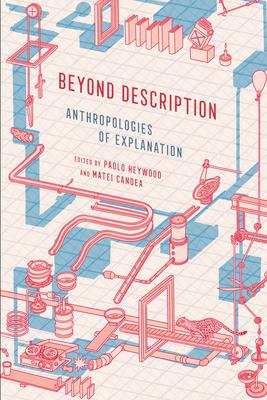Beyond Description brings anthropologists and other social scientists together to examine the problem of explanation. What is "an explanation?" What can it add? What makes it authoritative, clarifying, or misleading? Whom does it serve and how is it produced? These questions lie at the heart of recent public crises of confidence in expertise, political representation, and classic liberal visions of whom we can rely on for true and trustworthy accounts. In a world beset by events and processes that seem to defy expert predictions of their impossibility, and in which post-hoc accounts can often feel more like rationalizations than explanations, competing voices vie for public presence and seek to silence one another. Anthropology and the social sciences face such questions too, making contemporary explanatory practice both an empirical and a reflexive challenge.
By combining ethnographic studies of practices of explanation in a range of contemporary political, medical, artistic, religious, and bureaucratic settings, the essays in Beyond Description offer critical examinations of changing norms and forms of explanation in the world and within anthropology itself.
